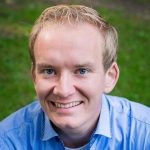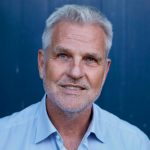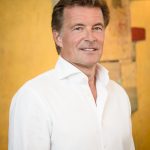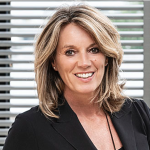Kettingbrief
Verhaallijn 1 31-12-2021
Editie 4 | Jaargang 9
What has your career been like so far?
In 2015 I graduated from Den Hartogh Logistics, a logistics service provider in the (liquid) chemical and gas industry. After graduating, I decided to stay with Den Hartogh and worked in the operation for a while. After almost 2 years I had the opportunity to develop a worldwide S&OP process with a project team to better balance the tank container network. After the implementation of this project and having kept this process running for a number of months, I became responsible for the tank container planning in Europe.
Why did you choose the industry you work in now?
The company was the deciding factor for me, not the industry. Den Hartogh is a very open, ambitious and hardworking family business. I discovered this during my graduation project and that made me decide to stay here. Of course you have to be interested in the industry and its challenges, but it was not on priority #1.
Is there a step in your career that has been decisive and if so which one?
I don’t think there’s one step that has shaped my career, but I don’t really believe in it either. I think it’s about discovering what gives you energy. Which activities, which working environment, which colleagues, etc. And that you continue to (and dare to) seek this energy. Then you end up with a position, left or right, that suits you well.
A technical business expert often knows how to look closely at the bigger picture. Suppose you can exchange with Mark Rutte for a week and the Netherlands is your BV, which 2 things would you find important and tackle?
Wow, I had to think about that for a moment! What interests me enormously is the individualization and hardening of positions in a world that is becoming increasingly globalized and increasingly virtual.
You also see this in organizations (reinforced during the corona crisis)! olleagues no longer meet informally, their conversations are only businesslike. That lowers empathy and miscommunication lurks. In order to continue to understand each other and to be able to work well together, that conversation at the coffee machine is indispensable.
I think that also applies to society. We must continue to meet in order to develop understanding for each other. So I would probably argue from the Turret for more community spirit!
What advice would you give current students?
Don’t always keep all options open or think about what your next career step should be. Make your choices consciously and then go completely ahead. Then the opportunities come naturally.
You can change a question, which one would you change and why?
Old question: Is there a step in your career that has been decisive and if so which one?
New question: To what extent does your expectation about your career during your student days differ from today?







